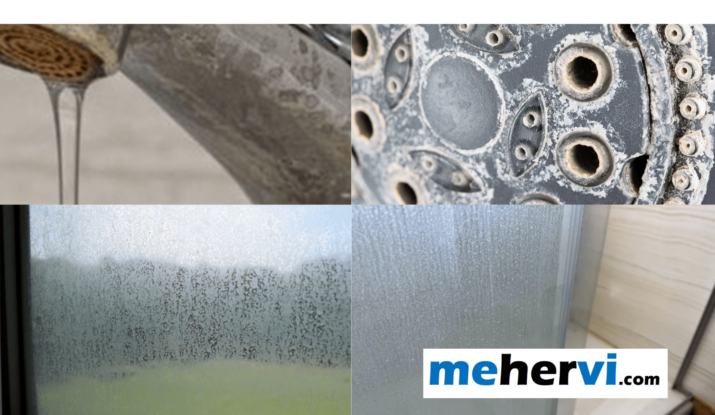How to Remove Hard Water Stains everywhere in Your House or Workplace?
Remember to refer to this cleaning guide the next time stubborn hard water stains arise. If you frequently have hard water in your house or workplace—that is, water with a high concentration of minerals like calcium and magnesium—you have probably encountered the difficulties associated with cleaning. Hard water leaves stains anywhere it dries, particularly in areas that aren’t cleaned frequently or are frequently wet. On drains, faucets, showers, toilets, and other surfaces, the water can leave behind layers of soap scum or limescale, both of which appear as white, chalky stains. Hard water can be heavy in iron, resulting in ugly rust streaks. Discover how to remove ugly hard water stains for spotless surfaces and well-functioning equipment.
Products we can use to Remove Hard Water Stains
Hard water stains should always be cleaned using a low-pH cleaner, according to Clorox’s in-house scientist and cleaning specialist Mary Gagliardi (often known as “Dr. Laundry”). Products with bleach added are made with a high pH; low-pH products do not contain sodium hypochlorite bleach. For the treatment of hard water stains, MomRemedy founder Jennifer Cosco suggests hydrogen peroxide. The mineral deposits in the hard water may be dissolved and broken down by hydrogen peroxide, according to her, because of its somewhat acidic qualities. The stains become easier to remove and clean up after the deposits are broken down. Low-pH cleaners can also be effectively made with baking soda and white vinegar. To make a paste for cleaning stubborn hard water stains, combine baking soda with vinegar or water. Particularly for equipment like dishwashers and washing machines, vinegar works well both on its own and when diluted with equal parts water.
Methods of Removing Hard Water Stains in the Kitchen
Your kitchen faucets and sinks should also be cleaned using a solution of hydrogen peroxide and water or any other low-pH cleaning solution. Prior to cleaning or wiping, make sure the mixture has sat for a minimum of 15 minutes to allow any buildup to break down. The reason your kitchen tap isn’t shooting water adequately could potentially be due to hard water buildup. Use a rubber band to secure a plastic bag filled with vinegar and water around the tap head as a treatment. If there’s any muck, let it soak for half an hour to an hour.
How to Remove Hard Water Stains in the Bathroom?
Hard water stains can easily accumulate in your bathroom’s sink, bathtub, shower and toilet. Cosco advises combining equal parts of water and hydrogen peroxide in a bowl or spray bottle to make your own cleaning solution.
To begin, immediately apply the solution to the tile, glass, or faucets that have a hard water stain. In order for the hydrogen peroxide to permeate and dissolve the mineral deposits, let the solution stay on the stain for a short while. After that, carefully scrub the soiled areas with a scrub brush, sponge, or towel. Scrubbing and hydrogen peroxide work together to lift and get rid of stains left behind by hard water.
Gagliardi says the Clorox Toilet Bowl Cleaner—Lime & Rust Destroyer is a great toilet cleaner. Its composition removes hard water stains and sanitizes toilets without the need of bleach. Prior to applying the toilet bowl cleaning, flush the toilet and use the uniquely designed bottle to squirt the liquid above the water line and beneath the rim. Next, let the product rest for five minutes before flushing it after using a toilet brush to thoroughly clean the bowl.
How to Remove Hard Water Buildup from the Appliances ?
You may need to give your appliances a thorough cleaning if you’re experiencing things like hazy dishes or uncomfortable clothes.
With a bowl of white vinegar on the top rack and the hottest cycle running, you can rid your dishwasher of hard water buildup. Utilising Affresh Dishwasher Cleaner Tablets or another similar product, run an additional cycle in the dishwasher.
Add several cups of white vinegar to the tub and use the hottest cycle on your washing machine to give it a thorough cleaning. In addition to installing a water softener, there are a few other things you can do if your water is hard to adjust your washing cycles.
Because they are constantly exposed to the minerals in the hard water, other appliances, such as coffee makers, that run water often can also require cleaning. Utilizing a ratio of half water to half white vinegar, feed the coffee or espresso maker just as you would regular water. After that, make sure all of the vinegar is rinsed out by running a standard cycle with just water.
Click here to Read more informative articles like this or to Book a free consultation for your upcoming cleaning needs.

